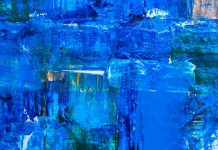Malayalam Poetry in Translation Series – 22
Translated by Aditya Shankar
More than any other genre in Malayalam literature, poetry has articulated the profound contradictions of the Malayalee psyche, its moral trepidations and its desire for liberation from the oppressive ideologies of discrimination like those of class, caste and gender. Poetry has insistently refused to be a mere entertainer or a leisure-pastime, involving itself seriously in social struggles and sharing the agonies and aspirations of individuals of all social layers and persuasions. This is also the reason for its unique vibrancy and popularity that we seldom find in most other languages of India.
(Extract from the article ‘Malayalam Poetry Today’ by K.Satchidanandan)
*
Ma
(For Mandakini Narayanan)
Amar Bari, Tomar Bari, Naxal Bari
(You and I, our home is Naxalbari)
— Gaddar sings at the townhall.
Often heard him sing, but never seen him.
What if I can’t see him again?
Mandakini
the Ma of red Malayalam
is ready to leave,
though she is not well
though she is alone.
These days,
she doesn’t step outside unaccompanied.
Ajitha joins her, though busy with ‘Anveshi’.
Entrance Coaching, can’t join, states Gargi.
But dear daughter, you too haven’t seen Gaddar…
Mandakini, Ajitha, Gargi occupy the front row.
Soon, Ma will bestow Gaddar with the bouquet of Malayalam.
As Ma steps on the stage, town hall roars
(though it isn’t the good old Kozhikode!).
Burrakatha:
Gaddar removes his headscarf and bows his head.
As he prepares to touch the feet, the anklet sings:
We are revolutionaries, for ever and ever.
The era seas turn into mulberry orchards will never arrive,
who curses thus?
Bone shall no more turn into flute,
the lizard curses whom?
As Ma occupies the stage, town hall roars
(though it isn’t the good old Kozhikode!).
Mande,
Narayanettan beckons.
Mandedaththi,
Meesa Vasu beckons.
Comrade,
Varghese calls out loud.
The Wayanad wilderness roars,
again a landslide in the ghats,
Brahmagiri fumes,
Is the head raining a southwest monsoon?
——————-
shh, shh, shh, silence please…
Let Ma rest for a while.
Leaning against the ICU wall,
Yakoob, Gargi, Ajitha.
Footnote:
– Gummadi Vittal Rao, popularly known as Gaddar, is a poet, revolutionary Telugu balladeer and local Naxalite activist from what is now the state of Telangana, India.
– Mandakini Narayanan, popularly known as Ma, was an Indian naxalite leader in Kerala.
– K Ajitha is a former Indian naxalite and daughter of Ma. Anweshi is an NGO founded by Ajitha.
– Burra Katha, also spelled Burrakatha, is an oral storytelling technique in the Jangam Katha tradition, performed in villages of Andhra Pradesh and Telangana.
(Translation of Ma, page 45, Valathuvasham Chernn Nadakkuka, Mathrubhumi Books)
The Fire is Dying
The fire is dying out.
What resists the pitch dark of the no moon is this poor ember.
The fire is dying out.
What resists the mist of the capricorn is this poor ember.
What resists the gust of the late autumn wind is this poor ember.
It rains gloom. It rains silence. It rains death.
What resists them is this poor ember.
Ensure your fire isn’t doused,
the lover kisses on the forehead.
Ensure you fire isn’t doused,
the daughter’s tear falls on the chest.
Ensure you fire isn’t doused,
the sacred thread of the soul pulses.
Lover, daughter, me and my poetry
step out in search of firewood..
So as to gather wood from the eastern slopes,
we set the veins of poetry on fire.
So as to gather wood from the western slopes,
we set the grieving heart of lover on fire.
So as to gather wood from the northern slopes,
we set the angelic wings of daughter on fire.
So as to gather wood from the southern slopes,
we set my rotting soul on fire.
(Translation of Thee Ananju Kondirikkunnu, page 61, Valathuvasham Chernn Nadakkuka, Mathrubhumi Books)
Do Not Kiss on the Eyes
Kiss on the pate,
as your father, mother and brother does.
Hold close with affection,
as your aunt and uncle.
Descend delicately on the cheeks,
as a butterfly.
When we eventually meet,
don’t we need to shower
at least this much love?
Give a look of love
and kiss on the palms.
I shall nod with my black bangles
that I always sensed your love.
Kiss on my jugular veins.
When you sign
I care for you dear..
with your shivering lips,
I get aroused again.
Let’s lock lips,
be alone in the world.
The world itself vanishes,
winks the jealous full moon.
But kiss me not on the eyes.
Please, please,
If you kiss on my eyes,
I would shut them tight.
Then I vanish, my world too.
You become a lip shrouded by the moustache.
I vanish and remain only yours.
So, please
kiss me not on my eyes..
(Translation of Kannukalilummavekkaruthu, page 32, Valathuvasham Chernn Nadakkuka, Mathrubhumi Books)
About the Author
Civic Chandran (b. 1951) is a poet, playwright, theatre activist, former naxalite sympathizer and social activist. One of the initial proponents of street plays in Kerala, his work in theatre has been honored by the Sangeet Natak Akademi and the Vikraman Nair Trophy Drama Festival. He was the editor of the people’s cultural forum and the editor of its magazine, Prerana and currently, he is the editor of the magazine Patabedham. He has many books to his credit, including volumes of essays, plays, and poetry collections. His volumes of poetry include Valathuvasham Chernn Nadakkuka, Veḷichathekkurichoru Geetham, and Gruhapravesham.
About the Translator
Aditya Shanka r is a Pushcart Prize and Best of the Net nominated poet, flash fiction author, and translator. He edited Tiny Judges Shall Arrive (AHRC, Hong Kong), a selection of KG Sankara Pillai’s poems translated into English. His translations have appeared in the SAARC anthology of poetry, Muse & Murmur, Modern Poetry in Translation, Ethics in Action and elsewhere. His poems have been translated into Malayalam and Arabic and published from 20 or more nations. His poetry collections include After Seeing (2006), Party Poopers (2014), and XXL (Dhauli Books, 2018). His short films have participated in International Film Festivals. He lives in Bangalore, India . (https://adityashankar.ucraft.net/).
r is a Pushcart Prize and Best of the Net nominated poet, flash fiction author, and translator. He edited Tiny Judges Shall Arrive (AHRC, Hong Kong), a selection of KG Sankara Pillai’s poems translated into English. His translations have appeared in the SAARC anthology of poetry, Muse & Murmur, Modern Poetry in Translation, Ethics in Action and elsewhere. His poems have been translated into Malayalam and Arabic and published from 20 or more nations. His poetry collections include After Seeing (2006), Party Poopers (2014), and XXL (Dhauli Books, 2018). His short films have participated in International Film Festivals. He lives in Bangalore, India . (https://adityashankar.ucraft.net/).












